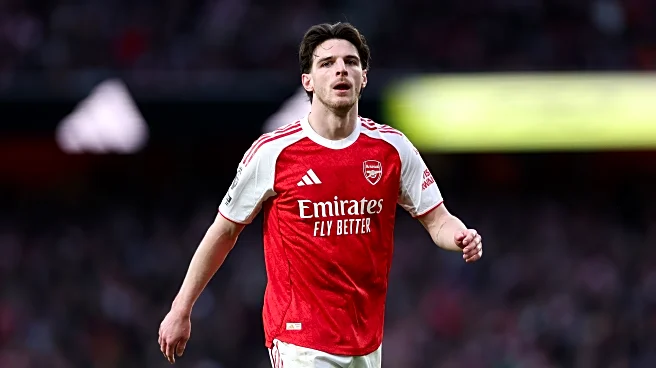Rapid Read • 8 min read
Michaline Babich, the creator of Bravo's 'Next Gen NYC,' has revealed insights into the show's development and success. Initially met with skepticism, the show features children of the Real Housewives, including Brooks Marks, Ariana Biermann, Riley Burruss, and Gia Giudice. Despite early doubts, 'Next Gen NYC' has become Bravo's most-watched series and season premiere, with significant viewership on Peacock. Babich attributes the show's success to the chemistry among the cast and the audience's eventual appreciation of the characters. The show also marks a milestone with the casting of Emira D'Spain, Bravo's first full-time transgender cast member.
AD
The success of 'Next Gen NYC' highlights the evolving landscape of reality television, where the focus is shifting towards younger, diverse casts. This development is significant for Bravo as it expands its audience base and adapts to changing viewer preferences. The inclusion of a transgender cast member reflects broader societal changes towards inclusivity and representation in media. The show's popularity may influence future programming decisions at Bravo, potentially leading to more shows featuring younger generations and diverse backgrounds.
Babich has hinted at the possibility of a Los Angeles-based spin-off, 'Next Gen LA,' featuring children of Real Housewives and other public figures. This expansion could further solidify Bravo's position in the reality TV market by tapping into new demographics and locations. The show's success may also lead to more seasons of 'Next Gen NYC,' with potential new cast members joining the existing group. As the show continues to gain traction, Bravo may explore additional opportunities to leverage its popularity.
The show's success underscores the cultural fascination with the lives of children of celebrities and public figures. It also raises questions about the impact of fame on younger generations and their relationships with their parents. The portrayal of these dynamics on television can influence public perceptions and spark discussions about the responsibilities of media in representing diverse identities and experiences.
AD
More Stories You Might Enjoy













